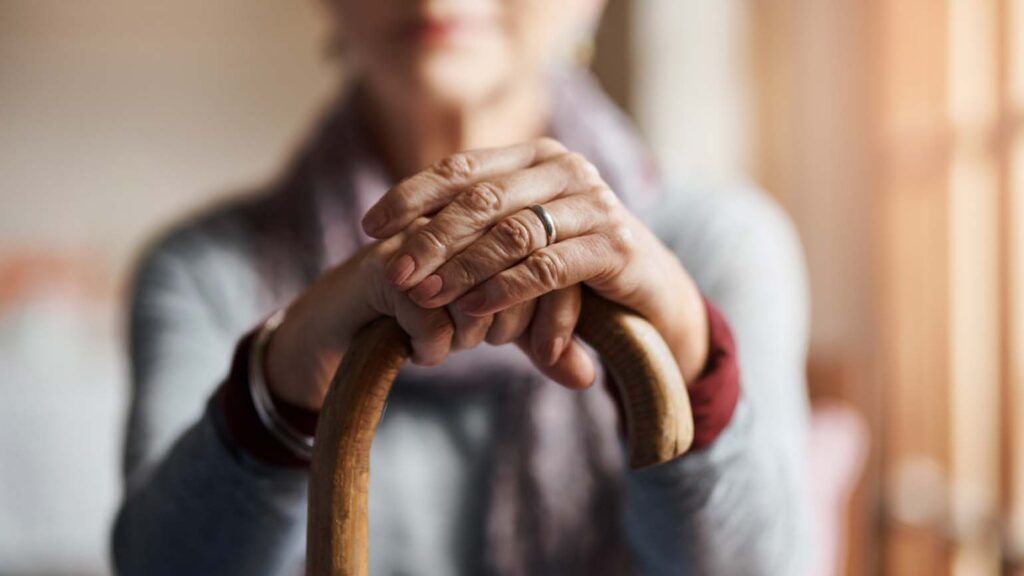Julie Hayes is the Content Manager at Benjamin Rose Institute on Aging.
Keeping your loved one safe from harm is fundamental to all that you do as a caregiver. It’s vital to know all that you can about the serious issue of elder abuse. One in 10 people in the U.S. who are 60 and above fall prey to this form of abuse, yet only about one in every 24 cases goes reported, according to the National Council on Aging.
If your loved one is victimized, he or she may not want to report it, or may not be able to. If that should happen, you as the caregiver are uniquely poised to take action on your loved one’s behalf. But in order to do this, it’s important to understand what constitutes elder abuse and how to spot its various forms. The National Center on Elder Abuse has identified seven types of this abuse:
Physical abuse
This form of elder abuse occurs when somebody employs physical force against an older person. It can include:
- Hitting
- Slapping
- Kicking
- Burning
- Excessive shaking
- Violent restraining
- Force-feeding
Any of these actions can cause pain, injury and impairment, and at its most extreme, physical abuse can be fatal.
The perpetrator is frequently a person who is close to the older adult, such as a spouse, son or daughter, or friend. But physical abuse can also take place in care settings such as residential homes or senior centers. Keep a watch out for unexplained injuries or bruises on your loved one. Should you notice a pattern to the timing and location of such injuries, it could mean that your loved one is being physically abused by somebody on a repeated basis.
Sexual abuse
Having nonconsensual sexual contact with an older person constitutes sexual elder abuse. It typically involves direct physical actions. However, it may involve indirect actions, as well. These indirect actions may include taking and distributing sexual photos of an older person without his or her consent.
Keep in mind that someone who is confused, disoriented or unable to understand or who has cognitive impairment because of a prescription drug or chronic condition, is not capable of consenting.
Emotional or psychological abuse
Talking or acting in a manner that causes an older adult to suffer emotional distress or pain constitutes emotional or psychological elder abuse. It can take the form of:
- Harassment
- Intimidation
- Humiliation
- Belittling
- Threats
- Use of slurs or discriminatory language
- Gaslighting
Nonverbal communication, like purposely ignoring the older adult or using “the silent treatment” can also be emotionally or psychologically abusive.
Some abusers use the excuse that an older adult who has dementia will forget what happened. Yet, emotional and psychological abuse can have a profound effect on someone who has cognitive impairment. Even though the person might not recall the words that were spoken, he or she can frequently recall the feelings that resulted, and go into a shell, get depressed or become afraid of the abuser.
Financial abuse
Financial elder abuse happens when somebody tries to defraud an older person. This can be via:
- Theft
- Scams
- Mishandling the person’s money
- Withholding financial resources
- Improperly wielding the authority granted by a power of attorney
The perpetrator may be someone the older adult knows and trusts, a professional scammer or a complete stranger.
Make sure to regularly review your loved one’s financial transactions and bills, and document any valuables or cash that disappear from his or her residence. You might also consider tips to protect your loved one from robocalls or internet scams, which have grown increasingly common.
Neglect
Elder neglect comes about when a caregiver or another person who is responsible for an older adult fails to meet his or her essential needs, causing harm. Such essential needs may be:
- Hygiene
- Food, water and shelter
- Clothing
- Access to medical care
In your role as a caregiver, you may very well be in the best position to protect your loved one from elder neglect. Meeting your loved one’s essential needs is at the core of caregiving. If you cannot meet these needs on a short-term basis, reach out for help from somebody who is able to, whether it’s a friend, family member or service provider. If you are unable to provide these needs over the long-term, it’s important to determine if you need to step back from your role.
Self-neglect
Self-neglect is a type of elder abuse that doesn’t involve a perpetrator. Instead, it occurs when an older adult neglects his or her own essential needs because there is no one else to help meet them.
Although it may be hard to believe, self-neglect can occur even when the older adult has a caregiver. It can happen when the older adult won’t let the caregiver assist or misleads the caregiver about what’s going on.
Abandonment
Elder abandonment is the result of a caregiver or another person in a position of responsibility deserting an older adult. For example, this person could leave the older adult at a hospital or public place with no intention of coming back.
What to do if you spot elder abuse
If your loved one is in physical danger, contact emergency services immediately. If your loved one is not in immediate danger, make a report to Adult Protective Services (APS). Go to the National Adult Protective Services Association website to get specific information for your state.
Other resources can help if you believe your loved one may have fallen prey to financial abuse. If the abuse was in the form of a scam, contact the Federal Trade Commission, or, for an online scam, the Internet Crime Complaint Center. If the perpetrator is a person your loved one knows, or is a power of attorney agent who is abusing authority, get in touch with an elder law attorney or your local prosecutor’s office.





